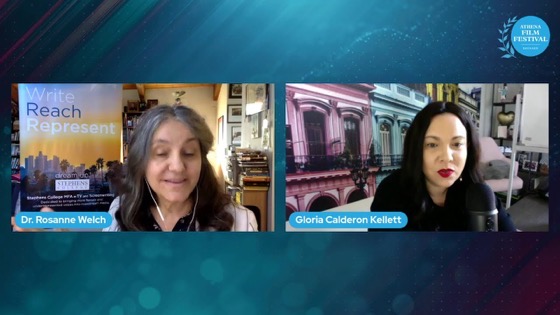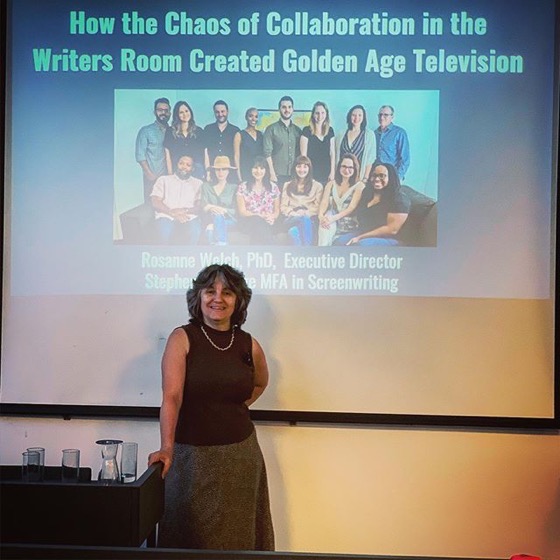Thanks to the gracious invitation from my Screenwriting Research Network colleague Paolo Russo – and a grant he was able to procure (and in the before-Covid time) I was able to spend a week at Oxford Brookes University working with the screenwriting masters students in Paolo’s course. At the culmination of the week, I gave this lecture on how writers rooms worked in the States.
Transcript:
Likewise, we have Stephen Bochco who really started the idea of multiplicity in storylines in Hill Sreet Blues which is a very famous show. We have Dick Wolf who gave us the Law & Order franchise that was on for 19 years. Didn’t quite make 20. This show’s made 21. I saw it just airing on Sky TV the other night so it’s something available in Britain and of course, there was a British version of Law & Order. They actually did one where they took early scripts and they transferred them here. Didn’t do great but what do you know? Don Bellisario gave us basically military heroes which were pretty big in the states but he himself had been in the military during Vietnam War and so he came out. People may not know it but the Magnum story was that right? He was a Vietnam War vet and then as Bellisiario moved through and these shows all ran a good ten years apiece. so long-running programs.
Watch this entire presentation
Subscribe to Rosanne’s Channel and receive notice of each new video!
* A portion of each sale from Amazon.com directly supports our blogs
** Many of these books may be available from your local library. Check it out!
† Available from the LA Public Library
![15 More On Writers-Producers from There And Back Again: Writing and Developing for American TV [Video] (51 seconds)](https://rosannewelch.com/wp-content/uploads/2021/03/rmw-oxford-brookes-15.jpg)

![14 Writers-Producers from There And Back Again: Writing and Developing for American TV [Video] (56 seconds)](https://rosannewelch.com/wp-content/uploads/2021/03/rmw-oxford-brookes-14.png)
![03 Managed Chaos from How The Chaos Of Collaboration in the Writers Room Created Golden Age Television [Video]](https://rosannewelch.com/wp-content/uploads/2021/03/srn-porto-03.jpg)


![13 Characters and Susannah Grant from There And Back Again: Writing and Developing for American TV [Video] (56 seconds)](https://rosannewelch.com/wp-content/uploads/2021/03/rmw-oxford-brookes-13.jpg)
![02 Words Matter. Writers Matter. Women Writers Matter from How The Chaos Of Collaboration in the Writers Room Created Golden Age Television [Video]](https://rosannewelch.com/wp-content/uploads/2021/03/srn-porto-02.jpg)
![Dr. Rosanne Welch Joins Panel on the Monkees TV Show with Plastic EP Live [Video] (49 Minutes)](https://rosannewelch.com/wp-content/uploads/2021/02/maxresdefault-2.jpg)
![Teaching one of my 3 classes today for Cal Poly Pomona via TikTok [Video]](https://rosannewelch.com/wp-content/uploads/2021/02/rmw-teaching-tt.gif)
![12 Describing Your Characters from There And Back Again: Writing and Developing for American TV [Video] (1 minute)](https://rosannewelch.com/wp-content/uploads/2021/02/rmw-oxford-brookes-12.png)
![01 Introduction from How The Chaos Of Collaboration in the Writers Room Created Golden Age Television [Video]](https://rosannewelch.com/wp-content/uploads/2021/02/SRN-2019-Portugal-.jpg)